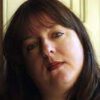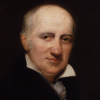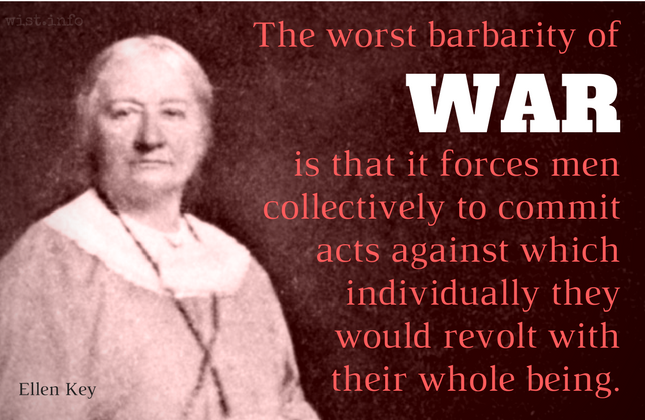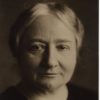Writing is more than anything a compulsion, like some people wash their hands thirty times a day for fear of awful consequences if they do not. It pays a whole lot better than this type of compulsion, but it is no more heroic.
Julie Burchill (b. 1959) English novelist, columnist, broadcaster
Sex & Sensibility, Introduction (1992)
(Source)
Quotations about:
compulsion
Note not all quotations have been tagged, so Search may find additional quotes on this topic.
Necessity brings him here, not pleasure.
[Necessità ‘l ci ‘nduce, e non diletto.]
Dante Alighieri (1265-1321) Italian poet
The Divine Comedy [Divina Commedia], Book 1 “Inferno,” Canto 12, l. 87 (12.87) [Virgil] (1309) [tr. Sinclair (1939)]
(Source)
Explaining why a living mortal is wandering around Hell. (Source (Italian)). Alternate translations:
Necessity, not Choice, has brought him here.
[tr. Rogers (1782)]
'Twas fate compell'd him, no profane delight.
[tr. Boyd (1802), st. 13]
Thereto induc’d
By strict necessity, not by delight.
[tr. Cary (1814)]
Nor pleasure draws us, but necessity.
[tr. Dayman (1843)]
Necessity brings him to it, and not sport.
[tr. Carlyle (1849)]
Necessity the cause, and not delight.
[tr. Bannerman (1850)]
Necessity compels him, not delight.
[tr. Johnston (1867)]
Necessity, and not delight, impels us.
[tr. Longfellow (1867)]
Necessity leads us on, and not enjoyment.
[tr. Butler (1885)]
Necessity compels us, not delight.
[tr. Minchin (1885)]
Necessity brings him hither and not delight.
[tr. Norton (1892)]
Necessity, not pastime, bringeth him to it.
[tr. Sullivan (1893)]
Necessity doth bring him here, not pastime.
[tr. Griffith (1908)]
Necessity brings him to it, and not whim.
[tr. Binyon (1943)]
Necessity brings him here, not sport nor jest.
[tr. Sayers (1949)]
Fate brings him here, not curiosity.
[tr. Ciardi (1954)]
Necessity brings him to it, and not sport.
[tr. Singleton (1970)]
He travels by necessity, not pleasure.
[tr. Musa (1971)]
Necessity has brought him here, not not pleasure.
[tr. Mandelbaum (1980)]
It is because he must come, not for amusement.
[tr. Sisson (1981)]
It is necessity,
And not pleasure, that puts him on this road.
[tr. Pinsky (1994), ll. 80-81]
Necessity induces us, and not pleasure.
[tr. Durling (1996)]
Necessity brings him here, and not desire.
[tr. Kline (2002)]
Necessity, not pleasure, leads us on.
[tr. Kirkpatrick (2006)]
Necessity compels us, not delight.
[tr. Hollander/Hollander (2007)]
He is brought
Here by necessity, not pleasure.
[tr. James (2013)]
War is nothing but a duel on a larger scale. Countess duels go to make up a war, but a picture of it as a whole can be formed by imagining a pair of wrestlers. Each tries through physical force to compel the other to do his will; his immediate aim is to throw his opponent in order to make him incapable of further resistance. War is thus an act of force to compel the enemy to do our will.
[Der Krieg ist nichts als ein erweiterter Zweikampf. Wollen wir uns die Unzahl der einzelnen Zweikämpfe, aus denen er besteht, als Einheit denken, so tun wir besser, uns zwei Ringende vorzustellen. Jeder sucht den anderen durch physische Gewalt zur Erfüllung seines Willens zu zwingen; sein nächster Zweck ist, den Gegner niederzuwerfen und dadurch zu jedem ferneren Widerstand unfähig zu machen. Der Krieg ist also ein Akt der Gewalt, um den Gegner zur Erfüllung unseres Willens zu zwingen.]
Karl von Clausewitz (1780-1831) Prussian soldier, historian, military theorist
On War [Vom Kriege], Book 1, ch. 1 “What Is War? [Was ist der Krieg?],” § 2 (1.1.2) (1832) [tr. Howard & Paret (1976)]
(Source)
(Source (German)). Alternate translations:
War is nothing but a duel on an extensive scale. If we would conceive as a unit the countless number of duels which make up a war, we shall do so best by supposing to ourselves two wrestlers. Each strives by physical force to compel the other to submit to his will: his first object is to throw his adversary, and thus to render him incapable of further resistance. War therefore is an act of violence to compel our opponent to fulfil our will.
[tr. Graham (1873)]
War is nothing but a duel on a larger scale. If we would combine into one conception the countless separate duels of which it consists, we would do well to think of two wrestlers. Each tries by physical force to compel the other to do his will; his immediate object is to overthrow his adversary and thereby make him incapable of any further resistance. War is thus an act of force to compel our adversary to do our will.
[tr. Jolles (1943)]
Do the gods light this fire in our hearts
or does each man’s mad desire become his god?[Dine hunc ardorem mentibus addunt,
Euryale, an sua cuique deus fit dira cupido?]Virgil (70-19 BC) Roman poet [b. Publius Vergilius Maro; also Vergil]
The Aeneid [Ænē̆is], Book 9, l. 184ff (9.184-185) [Nisus] (29-19 BC) [tr. Fagles (2006)]
(Source)
(Source (Latin)). Alternate translations:
Doth God our mind inspire, Or makes each man a god of's own desire? [tr. Ogilby (1649)]Or do the gods inspire
This warmth, or make we gods of our desire?
[tr. Dryden (1697)]
Do the gods, Euryalus, infuse this ardour into our minds? or is each one's earnest inclination his god?
[tr. Davidson/Buckley (1854)]
"Can it be Heaven" said Nisus then
"That lends such warmth to hearts of men,
Or passion surging past control
That plays the god to each one's soul?"
[tr. Conington (1866)]
Is it the gods who give
This ardor to our minds, Euryalus?
And must our strong desires be deemed divine?
[tr. Cranch (1872), l. 230ff]
Lend the gods this fervour to the soul, Euryalus? or does fatal passion become a proper god to each?
[tr. Mackail (1885)]
Doth very God so set the heart on fire,
Euryalus, or doth each man make God of his desire?
[tr. Morris (1900)]
Is it that the Gods inspire,
Euryalus, this fever of the breast?
[tr. Taylor (1907), st. 24, l. 208ff]
Is it gods above that breathe
this fever in my soul, Euryalus?
or is the tyrant passion of each breast
the god it serves?
[tr. Williams (1910)]
Do the gods, Euryalus, put this fire in our hearts, or does his own wild longing become to each man a god?
[tr. Fairclough (1918)]
Euryalus, what is it?
Do the gods put this ardor in our hearts
Or does each man’s desire become his god?
[tr. Humphries (1951)]
Is it God that makes one burn to do brave things,
Or does each of us make a god of his own fierce passion to do them?
[tr. Day-Lewis (1952)]
Euryalus, is it
the gods who put this fire in our minds,
or is it that each man's relentless longing
becomes a god to him?
[tr. Mandelbaum (1971), l. 243ff]
This urge to action, do the gods instill it,
Or is each man's desire a god to him,
Euryalus?
[tr. Fitzgerald (1981), l. 252ff]
Is it the gods who put this ardour into our minds, or does every man's irresistible desire become his god?
[tr. West (1990)]
Euryalus, do the gods set this fire in our hearts,
or does each man’s fatal desire become godlike to him?
[tr. Kline (2002)]
Do the gods
Put this fire in our hearts, Euryalus,
Or do our passions become our gods?
[tr. Lombardo (2005)]
Do gods enflame our hearts, Euryalus,
or do our fierce desires become our gods?
[tr. Bartsch (2021)]
Love, you tyrant!
To what extremes won’t you compel our hearts?[Improbe Amor, quid non mortalia pectora cogis!]
Virgil (70-19 BC) Roman poet [b. Publius Vergilius Maro; also Vergil]
The Aeneid [Ænē̆is], Book 4, l. 412 (4.412) (29-19 BC) [tr. Fagles (2006), ll. 518-19]
(Source)
(Source (Latin)). Alternate translations:
Impious love,
What canst not thou compell in mortall brests?
[tr. Ogilby (1649)]
All-pow'rful Love! what changes canst thou cause
In human hearts, subjected to thy laws!
[tr. Dryden (1697)]
Unrelenting love, how irresistible is they sway over the minds of mortals!
[tr. Davidson/Buckley (1854)]
Curst love! what lengths of tyrant scorn
Wreak'st not on those of woman born?
[tr. Conington (1866)]
Accursèd power of love, what mortal hearts
Dost thou not force to obey thee!
[tr. Cranch (1872), ll. 544-45]
Injurious Love, to what dost thou not compel mortal hearts!
[tr. Mackail (1885)]
O evil Love, where wilt thou not drive on a mortal breast?
[tr. Morris (1900)]
O tyrant love, so potent to subdue!
[tr. Taylor (1907), st. 53, l. 473]
Relentless Love,
to what mad courses may not mortal hearts
by thee be driven?
[tr. Williams (1910), l. 409ff]
O tyrant Love, to what dost thou not drive the hearts of men!
[tr. Fairclough (1916)]
There is nothing to which the hearts of men and women
Cannot be driven by love.
[tr. Humphries (1951)]
Excess of love, to what lengths you drive our human hearts!
[tr. Day Lewis (1952)]
Voracious Love, to what do you not drive
the hearts of men?
[tr. Mandelbaum (1971), ll. 566-67]
Unconscionable Love,
To what extremes will you not drive our hearts!
[tr. Fitzgerald (1981), ll. 571-72]
Love is a cruel master. There are no lengths to which it does not force the human heart.
[tr. West (1990)]
Cruel Love, to what do you not drive the human heart? [tr. Kline (2002)]Cruel Love, what do you not force human hearts to bear?
[tr. Lombardo (2005)]
Cursed love, you make us stoop to anything.
[tr. Bartsch (2021)]
All writers are born; they’re never made … I take off and write, out of a sense of desperate compulsion. I always write as if I’d gotten my X-ray back from the doctor on Monday, and I’d best check with the insurance man to see whether or not the house is free and clear.
Rod Serling (1924-1975) American screenwriter, playwright, television producer, narrator
Lecture notes, Creativity Seminar, Ithaca College (c. 1972)
(Source)
For thousands of years people have been trying to force other people to think their way. Did they succeed? No. Will they succeed? No. Why? Because brute force is not an argument.
Robert Green Ingersoll (1833-1899) American lawyer, agnostic, orator
Speech to the Jury, Trial of C. B. Reynolds for Blasphemy, Morristown, New Jersey (May 1887)
(Source)
More books have resulted from somebody’s need to write than from anybody’s need to read.
Ashleigh Brilliant (b. 1933) Anglo-American epigramist, aphorist, cartoonist
Pot-Shots, #3273
(Source)
Necessity is the only successful adviser.
Charles Reade (1814-1884) English novelist and dramatist
(Attributed)
(Source)
In M. Ballou, Edge-Tools of Speech (1886).
To conceive that compulsion and punishment are the proper means of reformation, is the sentiment of a barbarian; civilisation and science are calculated to explode so ferocious an idea. It was once universally admitted and approved; it is now necessarily upon the decline. Punishment must either ultimately succeed in imposing the sentiments it is employed to inculcate, upon the mind of the sufferer, or it must forcibly alienate him against them. The last of these can never be the intention of its employer, or have a tendency to justify its application. […] Yet to alienate the mind of the sufferer, from the individual that punishes, and from the sentiments he entertains, is perhaps the most common effect of punishment.
William Godwin (1756-1836) English journalist, political philosopher, novelist
Enquiry Concerning Political Justice, Vol. 2, bk. 7, ch. 5 (1793)
(Source)
The worst barbarity of war is that it forces men collectively to commit acts against which individually they would revolt with their whole being.
Ellen Key (1849-1926) Swedish feminist and writer
War, Peace, and the Future, ch. 6 (1916) [tr. Norberg]
(Source)
I suppose we think euphemistically that all writers write because they have something to say that is truthful and honest and pointed and important. And I suppose I subscribe to that, too. But God knows when I look back over thirty years of professional writing, I’m hard-pressed to come up with anything that’s important. Some things are literate, some things are interesting, some things are classy, but very damn little is important.
Rod Serling (1924-1975) American screenwriter, playwright, television producer, narrator
“Rod Serling: The Facts of Life,” interview by Linda Brevelle (4 Mar 1975)
(Source)
Now I think, speaking roughly, by leadership we mean the art of getting someone else to do something that you want done because he wants to do it, not because your position of power can compel him to do it, or your position of authority. A commander of a regiment is not necessarily a leader. He has all of the appurtenances of power given by a set of Army regulations by which he can compel unified action. He can say to a body such as this, “Rise,” and “Sit down.” You do it exactly. But that is not leadership.
The sole end for which mankind are warranted, individually or collectively, in interfering with the liberty of action of any of their number, is self-protection. That the only purpose for which power can be rightfully exercised over any member of a civilised community, against his will, is to prevent harm to others. His own good, either physical or moral, is not a sufficient warrant. He cannot rightfully be compelled to do or forbear because it will be better for him to do so, because it will make him happier, because, in the opinions of others, to do so would be wise, or even right. These are good reasons for remonstrating with him, or reasoning with him, or persuading him, or entreating him, but not for compelling him, or visiting him with any evil in case he do otherwise. To justify that, the conduct from which it is desired to deter him must be calculated to produce evil to some one else. The only part of the conduct of any one, for which he is amenable to society, is that which concerns others. In the part which merely concerns himself, his independence is, of right, absolute. Over himself, over his own body and mind, the individual is sovereign.
The price of seeking to force our beliefs on others is that some day they might force their beliefs on us.
Mario Cuomo (1932-2015) American politician
“Religious Belief and Public Morality,” John A. O’Brien Lecture, U. of Notre Dame (13 Sep 1984)
(Source)
Compulsion in religion is distinguished peculiarly from compulsion in every other thing. I may grow rich by art I am compelled to follow, I may recover health by medicines I am compelled to take agt. my own judgment, but I cannot be saved by a worship I disbelieve & abhor.
Thomas Jefferson (1743-1826) American political philosopher, polymath, statesman, US President (1801-09)
“Notes on Religion” (1776-10?)
(Source)
Labeled by Jefferson "Scraps Early in the Revolution."
Music expresses that which cannot be said and on which it is impossible to be silent.
[Ce qu’on ne peut dire et ce qu’on ne peut taire, la musique l’exprime.]
Victor Hugo (1802-1885) French writer
William Shakespeare, Part 1, Book 2, ch. 4 (1864) [tr. Baillot]
(Source)
(Source (French)). Alternate translation:
Music expresses that which cannot be said, and which cannot be suppressed.
[tr. Anderson (1891)]
Conscience can’t be compelled.
Thomas Fuller (1654-1734) English physician, preacher, aphorist, writer
Gnomologia: Adages and Proverbs, #1144 (1732)
(Source)
But is uniformity of opinion desirable? No more than of face and stature. Introduce the bed of Procrustes then, and as there is danger that the great men may beat the small, make us all of a size, by lopping the former and stretching the latter. Difference of opinion is advantageous in religion. The several sects perform the office of a Censor morum over each other. Is uniformity attainable? Millions of innocent men, women, and children, since the introduction of Christianity, have been burnt, tortured, fined, imprisoned; yet we have not advanced one inch towards uniformity. What has been the effect of coercion? To make one half the world fools, and the other half hypocrites. To support roguery and error all over the earth.
Thomas Jefferson (1743-1826) American political philosopher, polymath, statesman, US President (1801-09)
Notes on the State of Virginia, Query 17 (1782)
(Source)
Struggles to coerce uniformity of sentiment in support of some end thought essential to their time and country have been waged by many good, as well as by evil, men. Nationalism is a relatively recent phenomenon, but, at other times and places, the ends have been racial or territorial security, support of a dynasty or regime, and particular plans for saving souls. As first and moderate methods to attain unity have failed, those bent on its accomplishment must resort to an ever-increasing severity. […] Those who begin coercive elimination of dissent soon find themselves exterminating dissenters. Compulsory unification of opinion achieves only the unanimity of the graveyard.
Robert H. Jackson (1892-1954) US Supreme Court Justice (1941-54), lawyer, jurist, politician
West Virginia Board of Education v. Barnette, 318-319 U.S. 624 (1943) [majority opinion]
(Source)
He had discovered a great law of human action, without knowing it — namely, that in order to make a man or a boy covet a thing, it is only necessary to make the thing difficult to attain. If he had been a great and wise philosopher, like the writer of this book, he would now have comprehended that Work consists of whatever a body is obliged to do, and that Play consists of whatever a body is not obliged to do. And this would help him to understand why constructing artificial flowers or performing on a tread-mill is work, while rolling ten-pins or climbing Mont Blanc is only amusement.
The basic test of freedom is perhaps less in what we are free to do than in what we are free not to do.
Eric Hoffer (1902-1983) American writer, philosopher, longshoreman
The Passionate State of Mind, Aphorism 176 (1955)
(Source)
This clearly shows that we learn better in a free spirit of curiosity than under fear and compulsion.
[Hinc satis elucet maiorem habere vim ad discenda ista liberam curiositatem quam meticulosam necessitatem.]
Augustine of Hippo (354-430) Christian church father, philosopher, saint [b. Aurelius Augustinus]
Confessions, Book 1, ch. 14 / ¶ 23 (1.14.23) (c. AD 398) [tr. Pine-Coffin (1961)]
(Source)
(Source (Latin)). Alternate translations:
No doubt, then, that a free curiosity has more force in our learning these things, than a frightful enforcement.
[tr. Pusey (1838)]
Hereby it appears that free curiosity has more force in our learning of tongues than frightful enforcement.
[ed. Shedd (1860)]
From this it is sufficiently clear that a free curiosity hath more influence in our learning these things than a necessity full of fear.
[tr. Pilkington (1876)]
Whence it is sufficiently clear, that the free desire of knowledge has more power to make us learn these things than the urgency of fear.
[tr. Hutchings (1890)]
It is plain then that the freedom of curiosity is a far better instructor in language than the compulsion of fear.
[tr. Bigg (1897)]
All this goes to prove that free curiosity is of more value in learning than harsh discipline.
[tr. Sheed (1943)]
From this it is sufficiently clear that a free curiosity is more effective in learning than a discipline based on fear.
[tr. Outler (1955)]
Hence it is plain enough that for learning a language free interest has greater power than frightening constraint.
[tr. Ryan (1960)]
It is clear enough from this that free curiosity is a more powerful aid to the learning of languages than a forced discipline.
[tr. Warner (1963)]
By this it is clear that a free curiosity is a greater force in learning than a fear-ridden compulsion.
[tr. Blaiklock (1983)]
If there is any fixed star in our constitutional constellation, it is that no official, high or petty, can prescribe what shall be orthodox in politics, nationalism, religion, or other matters of opinion, or force citizens to confess by word or act their faith therein. If there are any circumstances which permit an exception, they do not now occur to us.
Robert H. Jackson (1892-1954) US Supreme Court Justice (1941-54), lawyer, jurist, politician
West Virginia State Board of Education v. Barnette, 319 U.S. 624 (1943) [majority opinion]
(Source)

























